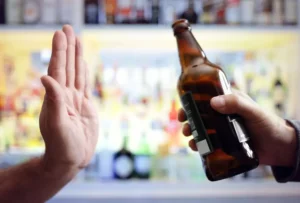
But what truly makes a person turn aggressive when why do some people get angry when drunk they’re under the influence of alcohol? As an expert in behavioral psychology and substance use, I’ve spent years trying to unravel this mystery. In this blog, we’ll discuss how drinking alcohol can make people behave aggressively and harm their mental health and how getting help for both substance abuse and mental health can aid recovery.

Social factors
- Alcohol factors into nearly a third of all murders in the United States.
- The outcomes of alcohol and anger can be hazardous, causing traumatizing situations for the inebriated person and the people around them.
- Research shows that people with high scores of pain catastrophising report more severe hangovers – suggesting that they’re focusing on their negative symptoms and possibly amplifying them.
- In a WHO assessment on domestic violence and alcohol, 55% of surveyed Americans stated they thought their partner was intoxicated during a physical assault.
While anger can underlie aggression, you can be angry and not aggressive or aggressive without being angry. Anger is an emotion made up of many different feelings like dissatisfaction, displeasure, hurt, and frustration. It’s a natural human response when life seems unfair or something you value is under threat.
Therapeutic Approaches to Dealing with Angry Drunks
Now, we’re not talking about a minor irritability here; these folks can become noticeably hostile and confrontational. Drinking cocktails that include energy drinks should be considered a possible factor for aggressive behavior as well. Researchers surveyed 175 young adults who mixed alcohol with caffeinated energy drinks about their verbal and physical aggression in bar conflicts. Results showed enough escalation in people consuming these drinks to label the beverages a “potential risk” to increased hostility.
- Additionally, this information should also be taught in schools to expand their understanding and hopefully reduce the prevalence of alcohol-related aggression.
- Alcohol also reduces inhibitions and makes you less afraid of the potential consequences of showing your anger, increasing the likelihood of an outburst.
- Plus, we’re always introducing new features to optimize your in-app experience.
- If someone you’re close to has a drinking problem and tends to gets angry when they’ve had a drink, you can read more about the dos and don’ts of dealing with an alcoholic partner.
Underlying Emotional Issues
“Later on in the night, you may find someone crying or becoming overly emotional, and this is because, as the alcohol wears off, there is a big drop in serotonin below baseline,” Tietz explains. Alcohol can impair the OFC, and disrupt communication between the OFC and the amygdala. Without the OFC doing its job of calming those intense emotions, a person can have a strong reaction (2). Alcohol causes changes in the prefrontal cortex (PFC), leading to disinhibition.
Alcohol and aggression
This Alcoholics Anonymous means that after having a drink, some people may be less able to see things from another person’s point of view. They may have less tolerance and patience for others, which can lead to angry outbursts. Alcohol impairs your judgement, decision making and problem solving abilities, due to affecting the chemicals in your brain. These impairments can make it seem as though anger is the only response in certain situations, instead of being able to explore other, more reasonable reactions. It can also lead you to make poor choices, such as reacting aggressively instead of calmly.
Impulsivity, alcohol, and rage
Because of the established link between aggression and alcohol, co-treatments have been developed that can also address anger while drinking. https://ecosoberhouse.com/ If you find yourself in a situation with someone who is angry while intoxicated, the first step is to assess your level of risk. There’s a difference in safety between someone who is expressing anger verbally and one who has become physically aggressive. If you’re predisposed to anger, drinking can exacerbate those tendencies.

When they come out, others notice them because they’re not a part of the everyday social experience. According to a review from 2017, alcohol is more likely to cause personality shifts related to negative emotions, but that doesn’t mean anger is the most common emotional experience while drinking. Anger can lead to aggression and hostility, but they aren’t the same. Aggression can also be rooted in emotions like fear or competitiveness. Likewise, hostility is an attitude of resentment and unfriendliness that doesn’t require feelings of anger. I’ve spent the last seven years researching and understanding alcoholism, addiction, and how people get sober.
If you had a parent who was frequently enraged while drunk, you may expect that response in yourself when drinking and therefore exhibit it. Additionally, more than three-quarters of study participants with the gene had mood disorders, personality disorders, and mood swings (10). In rodent studies, glutamine is linked to heightened agitation and aggression during alcohol withdrawal (7). Additionally, repeated drinking may alter GABA receptors and even damage cells, causing reduced sensitivity to the body’s own relaxing neurotransmitter (8). Drinking can have a relaxing or anxiety-relieving effect by mimicking the “chill-out” effects of GABA. At the same time, alcohol hinders the neurotransmitter glutamine, which has a stimulating effect.

And all too often, as in Ryan’s case, it reflects displacement, directing anger toward a target that is not the source of an individual’s original anger. Under the influence of alcohol, those already predisposed toward anger may vent or, more seriously, direct their anger toward a target that might be experienced as less threatening than the original target. Volunteers were asked to guzzle either two alcoholic drinks or two nonalcoholic placebo drinks before attempting the aggression game. Each member of the intoxicated set drank two cups of lemony vodka tonic, mixed to raise each drinker’s breath alcohol concentration above the legal driving limit in Australia, 0.05 percent. For years, our team at Gateway Foundation has provided comprehensive recovery programs for people going through alcohol misuse. Through various treatment options, we can help you get back to a life of normalcy.


Comment (0)